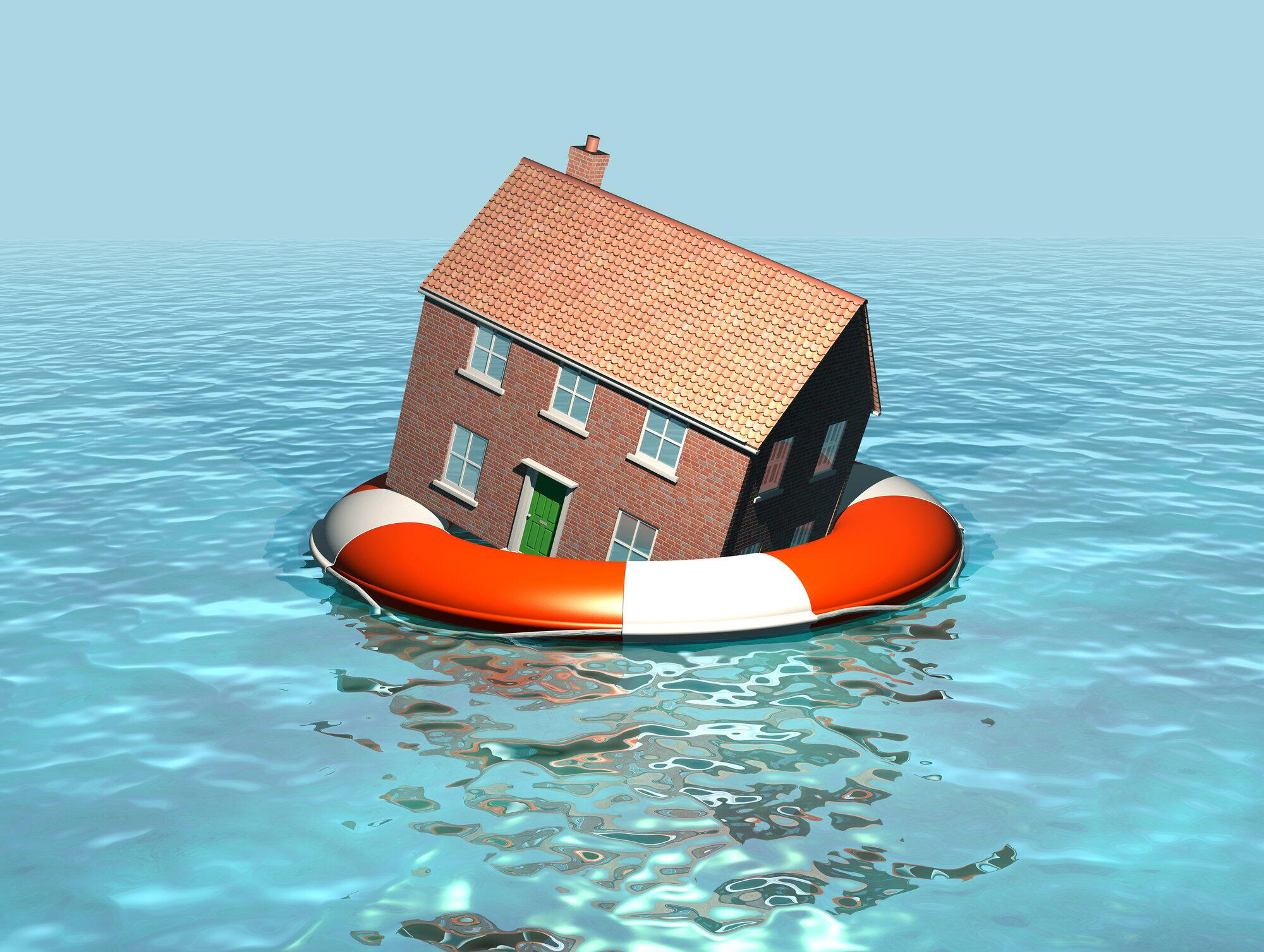Water damage in the basement is, unfortunately, a fairly common issue for homeowners. When water finds its way into the basement, it can cause problems like mold, dampness, and structural damage. One big worry for homeowners is whether this damage affects their ability to sell the house.
Potential buyers may be concerned about the extent of the damage and the cost of repairs. They might even worry about future problems if they buy the house. So, understanding how water damage impacts the sale of a house is important for both sellers and buyers.
In this blog post, we’ll explore this topic further to find out what options homeowners have. Let’s get started.
What is Water Damage?
Water damage happens when water gets into parts of a building where it shouldn’t be. It can show up in different ways, like leaks from pipes or floods from heavy rain.
Sometimes, you might not even see the water, but you can feel it in the air as dampness or see it on walls as water stains. The damage can range from small spots on the ceiling to big problems like weakened floors or mold growth.
Basically, any time water gets where it’s not supposed to be, it can cause damage. This can lead to problems like rotting wood, peeling paint, or even cracks in the walls.
So, it’s important to keep an eye out for signs of water damage and fix them fast.
Common Causes of Water Damage in Basement
There are several different possible causes of water damage in basements, including leaky foundations, poor drainage, plumbing leaks, and surface water intrusion. Let’s consider each of these in turn.
Leaky Foundations
Leaky foundations occur when cracks or gaps in the foundation allow water to seep into the basement. These cracks can develop over time due to factors like soil movement, settling of the foundation, or pressure from groundwater.
When water finds its way through these openings, it can lead to moisture buildup and dampness in the basement. Signs of a leaky foundation may include water stains on walls or floors, musty odors, or visible cracks in the foundation itself.
Addressing foundation leaks promptly is crucial to prevent further water damage and maintain the structural integrity of the home.
Poor Drainage
Poor drainage around the foundation can contribute to water damage in the basement. Inadequate grading or improperly functioning gutters and downspouts can cause water to pool around the basement walls.
This pooling water can then seep into the basement through cracks or gaps in the foundation, leading to moisture problems and potential structural damage.
Ensuring proper grading away from the foundation and maintaining clean, functional gutters and downspouts are essential steps to prevent water from accumulating near the house.
Plumbing Leaks
Plumbing leaks pose a significant risk of water damage in the basement. Failures such as burst pipes or leaking fixtures can result in water seeping into the basement from above or through the walls.
Often, these leaks are hidden behind walls or beneath floors, making them difficult to detect until damage becomes evident. Signs of plumbing leaks in the basement may include water stains, dampness, or the sound of running water behind walls.
Regular plumbing inspections and timely repairs are crucial for preventing water damage caused by plumbing leaks. Identifying and addressing leaks promptly can help minimize the risk of extensive damage and maintain the integrity of the home’s plumbing system.
Surface Water Intrusion
Surface water intrusion can lead to water damage in the basement, particularly during periods of heavy rainfall or melting snow. When water accumulates around the foundation due to inadequate drainage or improper grading, it can find its way into the basement through windows, doors, or cracks in the walls.
This type of water intrusion can result in moisture problems, including dampness, mold growth, and damage to walls and flooring. Signs of surface water intrusion in the basement may include water stains, puddles, or visible signs of water seepage.
Impact on Selling the House
Now, let’s consider the impact of water damage or a flood basement when it comes to selling a property. Here, we’ll look at everything from buy concerns to the effect on property value and more.
Understanding Buyer Concerns
Potential buyers often have concerns about water damage in the basement when considering a home purchase. They may worry about the extent of the damage and the potential risks associated with it, such as mold growth or structural issues.
Additionally, buyers may be concerned about the cost and inconvenience of repairs needed to address the water damage.
These factors can influence their decisions and may lead them to negotiate a lower price or walk away from the deal altogether. Therefore, it’s essential for sellers to address these concerns transparently and provide documentation of any repairs or mitigation efforts.
Effect on Property Value
Water damage in the basement can significantly impact the overall value of a property. When potential buyers see signs of water damage, such as stains, dampness, or visible mold, they may perceive the property as less desirable and may be hesitant to pay the full asking price.
Appraisers and real estate agents take into account the extent of the water damage when assessing the property’s value. They consider factors such as the severity of the damage, the cost of necessary repairs, and the potential impact on the home’s structural integrity and resale value.
Extensive water damage can result in lower appraisals and may lead to lower offers from buyers who are wary of the potential risks and expenses associated with repairing the damage. As a result, sellers may need to adjust their expectations and pricing accordingly to attract potential buyers and facilitate a successful sale.
Legal Considerations
Homeowners have legal obligations to disclose water damage when selling a house. Sellers must generally provide accurate information about known issues, including water damage in the basement.
Failure to disclose such issues can result in legal repercussions for the seller, including potential lawsuits from buyers. It’s crucial for sellers to be transparent about past water damage and repairs to avoid legal issues and maintain trust with potential buyers.
Mitigating Concerns
Mitigating concerns and attracting buyers despite water damage in the basement requires strategic approaches. For example, completing repairs promptly and providing documentation of the repairs can reassure buyers about the condition of the property.
Staging techniques can also help downplay the appearance of water damage and highlight the potential of the space. This might include using strategic lighting and furniture placement to draw attention away from problem areas, as well as showcasing the basement as a functional and inviting living space.
Additionally, emphasizing the home’s other desirable features and addressing any remaining concerns transparently during showings can help attract buyers who are willing to overlook the water damage in favor of other benefits the property offers.
Negotiating the Sale
Negotiating the sale of a house with water damage in the basement requires careful consideration and strategic planning. Here are some tips to help sellers navigate this process.
It’s important to address buyer concerns. This involves transparency about the extent of the water damage and providing documentation of any repairs or mitigation efforts. This can help reassure buyers and build trust during negotiations.
You should also set realistic expectations by understanding current market conditions and being prepared to negotiate a fair price based on the condition of the property and comparable sales in the area.
Selling for Cash to a Home Buyer
Selling for cash to a home buyer like We Buy Houses Memphis presents a convenient alternative to the traditional listing process. This option involves selling the house directly to a buyer who can pay with cash, eliminating the need for financing and lengthy negotiations.
For homeowners dealing with water damage in the basement, selling for cash offers a quick and hassle-free solution. Cash buyers like us are willing to purchase houses in as-is condition, including those with water damage, relieving homeowners of the burden of repairs. This can be particularly appealing for sellers who are facing time constraints or financial difficulties.
One of the key benefits of selling for cash is the ability to bypass the traditional selling process, which can be time-consuming and stressful. With a cash sale, homeowners can expect a fast closing, often within a matter of days or weeks, compared to the months-long process of a traditional sale.
Selling an Imperfect House in Memphis
The bottom line is that addressing water damage in a basement promptly and transparently is crucial when selling a house. By being upfront about the issue and providing documentation of repairs, sellers can build trust with potential buyers and facilitate a smoother selling process. Another great option is to skip the hassle and sell your house for cash.
Looking to sell your house fast in Memphis? Look no further than We Buy Houses Memphis, the trusted cash buyer with over 1 million satisfied homeowners. Get your cash offer today by filling out the form on our website. Don’t wait-let us help you sell your house hassle-free!







